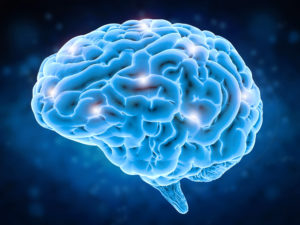
Does your partner complain about you snoring at night? Snoring is a frequent symptom of sleep apnea, a common disorder affecting more than 25 million Americans. Sleep apnea is marked by breathing interruptions of 10 seconds or more while one sleeps, and it usually happens dozens or even hundreds of times a night. This can leave a person feeling tired, groggy, and irritable during the day. However, sleep apnea can impact more than just your quality of rest. It can also affect your brain, causing problems like memory loss. Keep reading to discover how sleep apnea impacts brain health in Topeka and what you can do about it.
Sleep Apnea and Memory Loss
Sleep apnea disrupts the sleep cycle that your body needs to fully rest and recover. Waking up multiple times a night in order to start breathing again can lead to reduced short-term recall. This means you may have trouble remembering things just a few seconds or minutes after they occur. Consolidating and storing memories so they can be accessed later is an important part of the memory-creating process that occurs during sleep. However, research suggests that people with sleep apnea have trouble incorporating and categorizing their experiences, which leads to impaired memory formation and forgetfulness.
Sleep Apnea and Brain Tissue Damage
Sleep apnea, which starves the brain of oxygen, can also cause physical, measurable brain damage. One study of sleep apnea patients published in Sleep Journal, the official publication of the Sleep Research Society, found significant reductions in gray matter in certain areas of the brain. This led the principal investigator to conclude that sleep apnea could be responsible for poor memory, emotional problems, decreased cognitive functioning, and increased cardiovascular problems. In addition, a 2008 UCLA sleep apnea study found structural changes to white matter in the brain, especially in areas that regulate mood, memory, and blood pressure.
How a Dentist Can Help
The good news is that evidence shows treating sleep apnea may help heal a person’s brain. One common way to overcome sleep apnea is through continuous positive airway pressure (CPAP) treatment, which involves pumping oxygen through a face mask worn at night. According to the American Academy of Sleep Medicine, studies on people with significant brain damage due to sleep apnea found that CPAP treatment almost completely restored their white matter after a year and substantially improved their gray matter after only three months.
If you are experiencing mild to moderate sleep apnea, your dentist may be able to alleviate your symptoms with oral appliance therapy in Topeka. An oral appliance is essentially a custom mouthguard that helps keep your airway safely open while you sleep. Oral appliance therapy is an ideal alternative for patients who don’t feel comfortable wearing a CPAP mask or otherwise do not respond to CPAP treatment.
If you routinely experience memory problems and poor sleep, there is a good chance they could be related. Contact your dentist today for a sleep apnea consultation to protect your brain health and reclaim a good night’s sleep.
About the Author
Dr. Michael Michel has over 35 years of experience helping patients overcome sleep apnea in Topeka and Silver Lake. A proud graduate of the University of Missouri-Kansas School of Dentistry, he has pursued advanced training and continuing education in sleep dentistry for decades. To learn more about sleep apnea therapy in Topeka, visit Dr. Michel’s website or call 785-273-0802.
